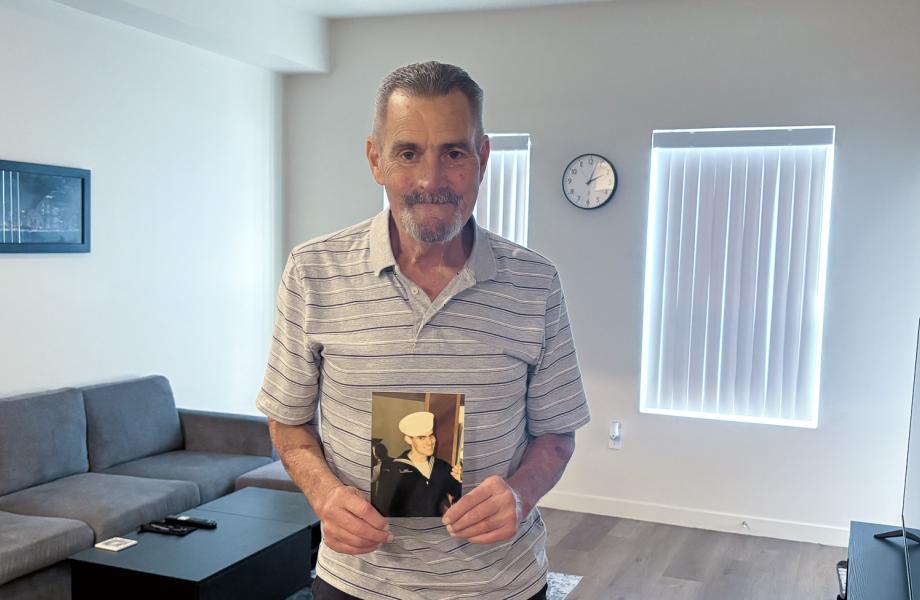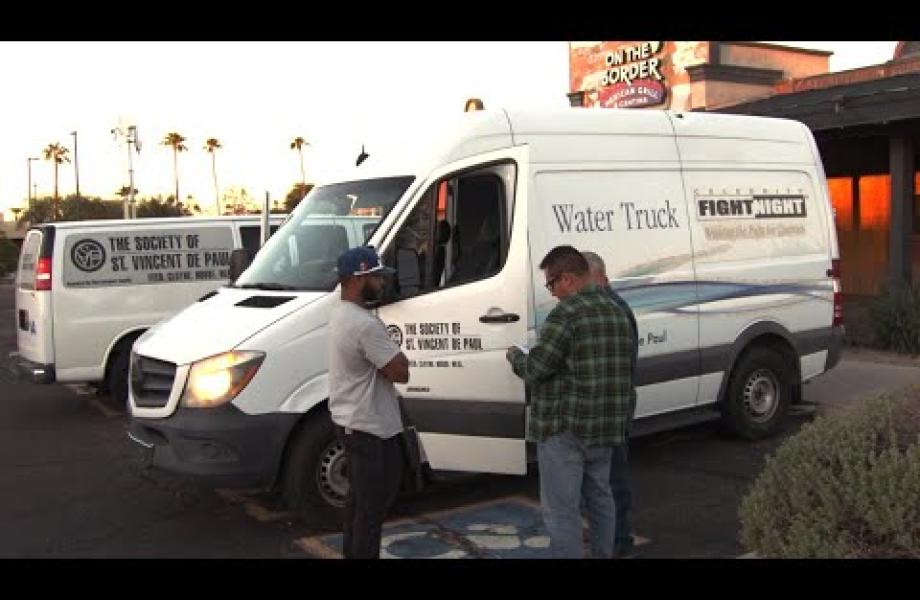Kaimi Nobles takes us to his old spot on the street
By Troy Hill
At 22, Kaimi Nobles was a stable, responsible young adult. He was working full-time at Raising Cane's, splitting rent with friends, and maintaining the kind of routine that comes with young adult independence. Then, in one afternoon after work, everything changed.
"I had broken my tibia, fibula and my ankle, all in one leg," Kaimi said. "It was a six to eight month recovery process."
What followed wasn't just a physical recovery—it was an emotional and mental challenge that would test every bit of his resilience. The injury reduced Kaimi to working just six hours a week due to his inability to stand for long periods. Without enough income to cover his share of the rent, he made the difficult decision to leave his apartment rather than burden his roommates.
"They were younger than me, and I didn't want to stop them from growing," he said.
That's when Kaimi found himself facing something he'd never imagined: Homelessness.
Making the situation even more challenging, his mother was also experiencing homelessness, so he stuck with her to do his best to take care of her while they were in that situation together.
"The first night was interesting," he reflects. "All those challenges hitting at once—it was debilitating for sure, but it didn't really stop me."
Even while sleeping outside, Kaimi continued working his limited hours.
"I still had to go to work. I still had to make sure I kept up with myself, like my self-care," he said.
For a few months, his routine involved waking up, gathering their belongings into a cart, taking the two-hour public transportation journey to a local partner organization’s shelter to try to get a bed, then returning to work on another two-hour bus ride.
Between travelling so much, working all the hours he could, and just trying to survive on the street, Kaimi was doing his best, but didn’t know what else to do.
The turning point came during an afternoon nap outside a QuikTrip. Representatives from another one of SVdP’s partner organizations pulled up and started a conversation. They told him about an opportunity for a bed at the Washington St. shelter, operated by St. Vincent de Paul.
"I knew immediately, I don't know what this looks like, but I need a change," Kaimi said.
Washington St. shelter provided something Kaimi hadn't experienced in months: Stability.
"It allowed me to get more in tune with myself, that self-care, getting in a better place mentally," he said. "It was like a sigh of relief. Now I could actually sleep on an actual bed, as opposed to a yoga mat or cardboard. And you can't avoid the weather on the street."
From Nov. 2024 to April 2025, the Washington St. shelter served as Kaimi's foundation for recovery. When a spot opened at Rosalie's Place, St. Vincent de Paul's transitional housing program, Kaimi took the next step in his rehousing journey.
Beyond providing basic necessities like food, clothing, hygiene supplies, and shelter, Rosalie's Place offers the invaluable removal of survival-mode stress.
"It's a really good environment. It's good peace of mind," Kaimi said about Rosalie's Place.
The 23-year-old values his relationship with the staff and particularly his case manager, John, who has helped him walk through the next steps to getting settled in the shelter, identifying paths forward, and connecting to any potential trainings and job opportunities.
"I feel like he wants to see me grow," he said. "So that's one of my favorite things about Rosalie's Place, is the willingness to help other people grow. That attitude of service."
After only a couple months at Rosalie's Place, Kaimi achieved a major milestone: Landing a full-time job with Aramark at ASU. He plans on saving up for a while so he can afford his own place or another place with roommates.
"I haven't been able to work in eight months, so it's definitely telling me that I'm closer to where I've wanted to be for the past year," he said.
Today, as Kaimi prepares to transition to independent housing, he carries with him not just the practical skills and stability he's gained, but the knowledge that community support can help anyone overcome even the most challenging circumstances. His journey from an unexpected injury to homelessness to rebuilding is a testament to both personal resilience and the power of compassionate, comprehensive services.



